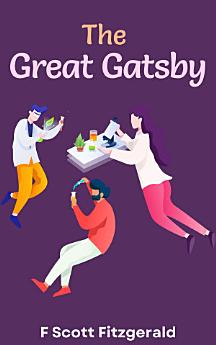The Great Gatsby: A Tragic Story of Wealth, Desire, and the American Dream
F. Scott Fitzgerald
Aug 2023 · BEYOND BOOKS HUB
Ebook
129
Pages
reportRatings and reviews aren’t verified Learn More
About this ebook
The Great Gatsby by F. Scott Fitzgerald stands as a masterful exploration of the American Dream, set within the tumultuous landscape of the Roaring Twenties. The novel revolves around Jay Gatsby, a man who has crafted a life of opulence and grandeur, hoping to win back the love of his life, Daisy Buchanan. Gatsby’s story is one of hope, illusion, and disillusionment as he chases a dream that ultimately proves unattainable. Fitzgerald masterfully critiques the American social order, portraying a world where the pursuit of wealth and status often leads to moral decay and personal destruction. Through a series of intricate character interactions, the novel explores the themes of love, loss, and the corrupting nature of materialism. Daisy, the object of Gatsby’s obsession, symbolizes the allure and emptiness of the American Dream. As the novel unfolds, the tragic consequences of Gatsby’s pursuits become increasingly clear, making it a poignant reflection on the transient nature of fame, wealth, and love. The novel’s timeless appeal lies in its universal themes of desire, identity, and the illusion of the American Dream.
Rate this ebook
Tell us what you think.
Reading information
Smartphones and tablets
Install the Google Play Books app for Android and iPad/iPhone. It syncs automatically with your account and allows you to read online or offline wherever you are.
Laptops and computers
You can listen to audiobooks purchased on Google Play using your computer's web browser.
eReaders and other devices
To read on e-ink devices like Kobo eReaders, you'll need to download a file and transfer it to your device. Follow the detailed Help Center instructions to transfer the files to supported eReaders.








